Covid inquiry: Welsh government 'caught with trousers down'
- Published
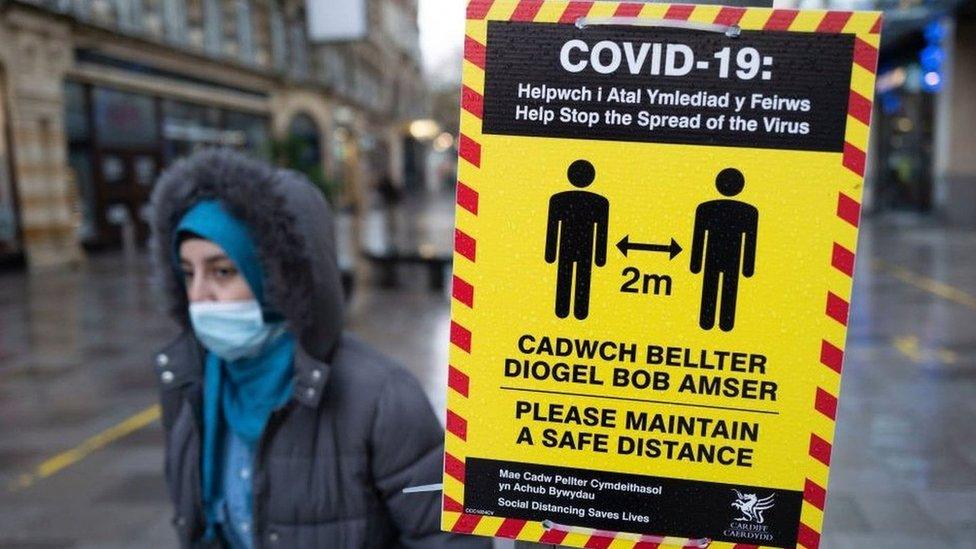
Wales' response to the Covid-19 pandemic will be covered by the UK-wide Covid inquiry
A woman who lost her mother in the pandemic says the Welsh government was "caught with its trousers down".
Elizabeth Grant's mother died after testing positive for the virus only days after being discharged from hospital, the Covid inquiry heard.
Meanwhile, the former children's commissioner for Wales said children's needs were not taken into account.
Some 12,300 people died due to the outbreak in Wales, with more than 43,000 admitted to hospital.
Sally Holland said that parks and play spaces were not reopened to children until after pubs had been reopened.
Giving evidence on the second day of the UK Covid inquiry's Welsh module, sitting in Cardiff, Ms Holland also said that she had not been consulted on school closures.
She would not have opposed the decision in March 2020, but said the government would have benefited from her office's knowledge and expertise, adding the pandemic had reminded people schools were much more than providers of academic learning.
"They feed our children, they sometimes wash their clothes and they are a very important source of well-being and support," she told the hearing.
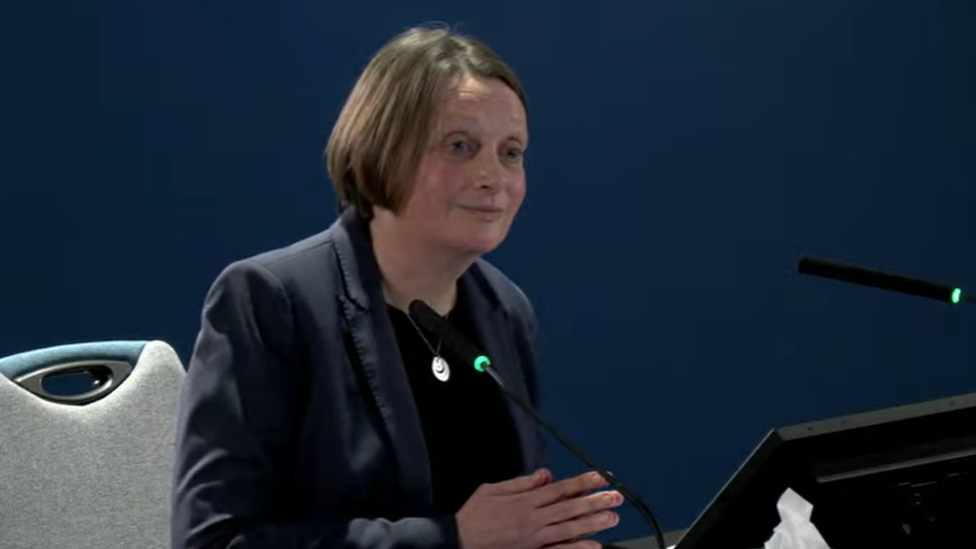
Sally Holland says missing school had "profound" effect on children
Ms Grant's mother, Betty, died at home in Monmouthshire in April 2020, aged 86, two days after being discharged from a community hospital.
Ms Grant was giving evidence as a representative of the Covid-19 Bereaved Families for Justice Cymru campaign group.
She said the government had "sat on its hands" when it came to the scale of the emergency.
"It does sound like they were caught with their trousers down," she said.
"And when they realised the impact of the virus on Welsh shores they sat on their hands."
She added she was not aware of the use of personal protective equipment (PPE) at the hospital and that her mother was neither tested for Covid upon being admitted nor when she was discharged from the previous hospital she was in.
When asked if she believed her mum contracted Covid-19 while in that hospital, Ms Grant replied: "Yes, without a shadow of a doubt."
Having travelled from Bath to help care for her she described the differences in the lockdown rules between England and Wales as "tantamount to chaos".
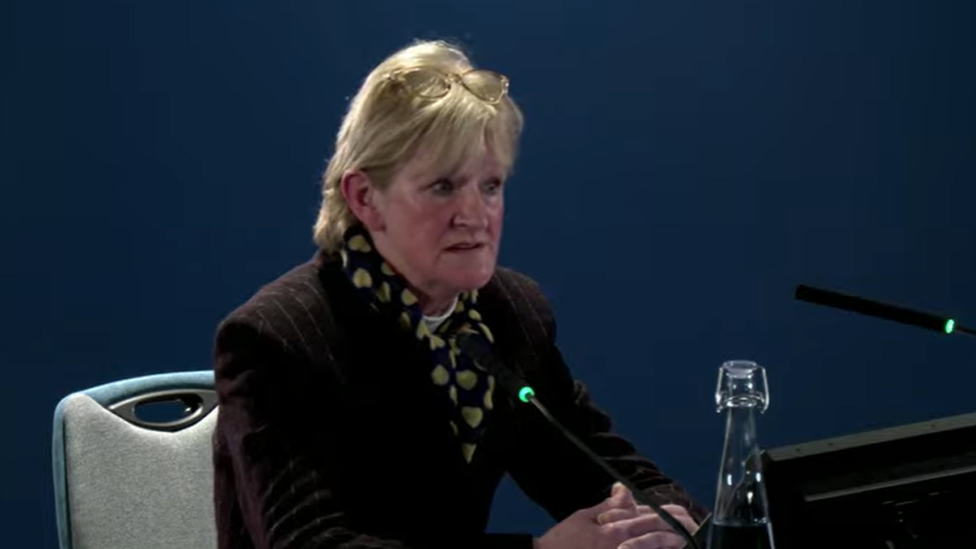
Elizabeth Grant was speaking at the Covid inquiry as a representative of the Covid-19 Bereaved Families for Justice Cymru campaign group
Ms Grant explained her group was looking at the "big picture" and had concerns about the use of PPE, the availability of respirators and the communications around end of life care, as well as the mandatory use of facemasks.
She also said she could not understand why the Six Nations game between Wales and Scotland had only been cancelled 24 hours before the match.
Another concern was the lack of testing of patients transferring between wards and hospitals or being discharged into the community.
Ms Grant said she wanted to know why the Welsh government did not start testing patients discharging from hospital until 29 April 2020 - some 13 days after the UK government changed its own guidance.
The older people's commissioner for Wales, Helena Herklots, said many people were being discharged into care homes from hospital without testing, while people within care homes were not being tested.
Ms Herklots said the response from Julie Morgan, deputy minister for health and social services, to call for a care home action plan at the beginning of the pandemic was "inadequate".
Amanda Provis, also of the Covid-19 Bereaved Families Cymru group, told the inquiry she too lost relatives from Covid, including her mother.
Her father was a hospital porter who was not provided with PPE, she said, and he started showing symptoms of Covid at the end of March 2020.
She said her mother then began to show Covid symptoms a day or so after he was sent home from work.
'Disposable throughout Covid'
Prof Emmanuel Ogbonna, from the first minister's black, asian and minority ethnic (BAME) Covid advisory group, also gave evidence.
He said the pandemic exposed existing racial inequalities, with the risk of Covid-related death 1.9 times higher in black, Asian and minority ethnic people compared to white people.
It was also 1.8 times higher in men from Bangladeshi and Pakistani backgrounds.
Prof Ogbonna added that language barriers and cultural differences played a part in hindering the Covid message getting across to ethnic minorities.
There was also a "particular concern" that mental health issues would be "exacerbated" in such communities during the pandemic.
Its impact on disabled people was also discussed, with Debbie Foster, from Cardiff University, saying that "they were generally seen as dispensable throughout Covid".
Speaking on behalf of those who had contributed to a report she had produced, Ms Foster explained that those with hearing impairments had problems with wearing face masks, whilst social distancing regulations disadvantaged those with visual impairments.
She also said that lockdown confinement affected the learning disabled, and added that many of these issues "should have been understood" early on.


- Published28 February 2024
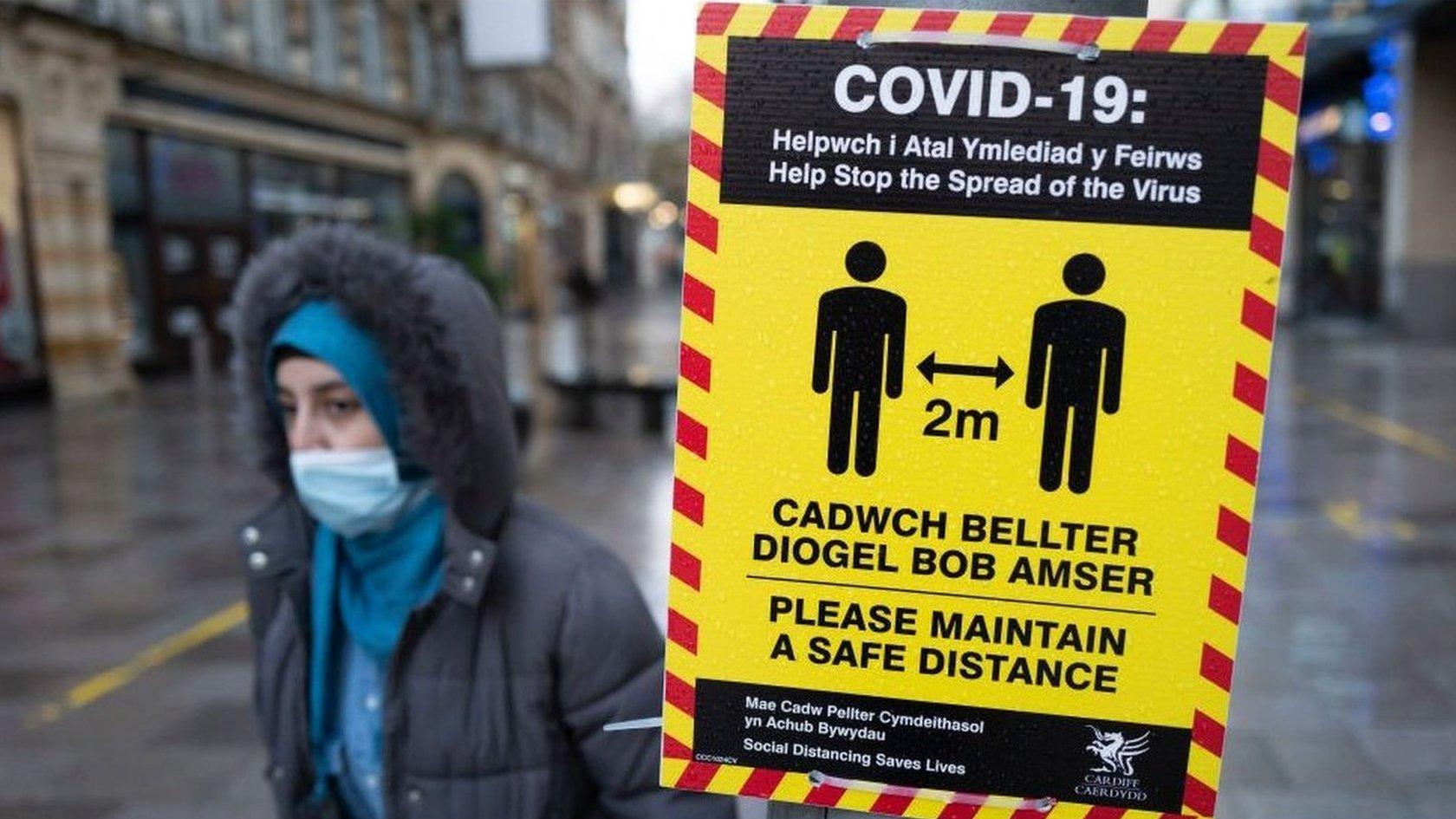
- Published27 February 2024

- Published27 February 2024
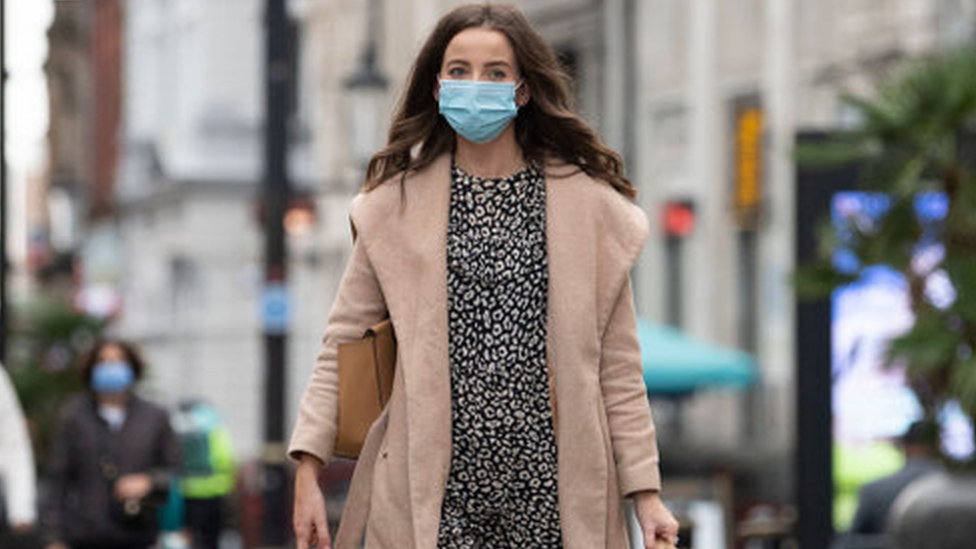
- Published28 May 2024

- Published31 October 2023